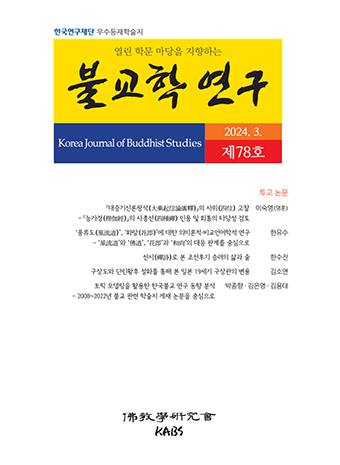Abstract
References
Sorry, not available.
Click the PDF button.
Information
This article focuses on the meaning of death and the meditation on death (maraṇasati or maraṇa-saññā) in the early Buddhism and Theravāda tradition. Death is a kind of existential suffering and provides an important opportunity for our spiritual development. According to the Buddhist teaching, to be born as a human being is very difficult chance to get. We can improve our spiritual path through the realization of the urgency of our death. In the early Buddhist literatures, the meditation on death was supposed to help us overcome our attachment to life and our unheedful, lazy attitude of practice, and thus eventually attain the final liberation, nibbāna. The key point of the meditation on death is to feel the impact of death in each moment between in-breath and out-breath, or every bite of food. When we understand and accept our death as an unescapable reality of our life, the meaning and real value of our life become clearer, motivating us to cultivate spiritual path, which will enable us to overcome our attachments and fundamental defilements. The meditation of death is a practice that leads us to overcoming of death itself and thus to full accomplishment of our life.
Click the PDF button.
- Publisher :Korean Association of Buddhist Studies
- Publisher(Ko) :불교학연구회
- Journal Title :Korea Journal of Buddhist Studies
- Journal Title(Ko) :불교학연구
- Volume : 16
- No :0
- Pages :5~22


 Korea Journal of Buddhist Studies
Korea Journal of Buddhist Studies






